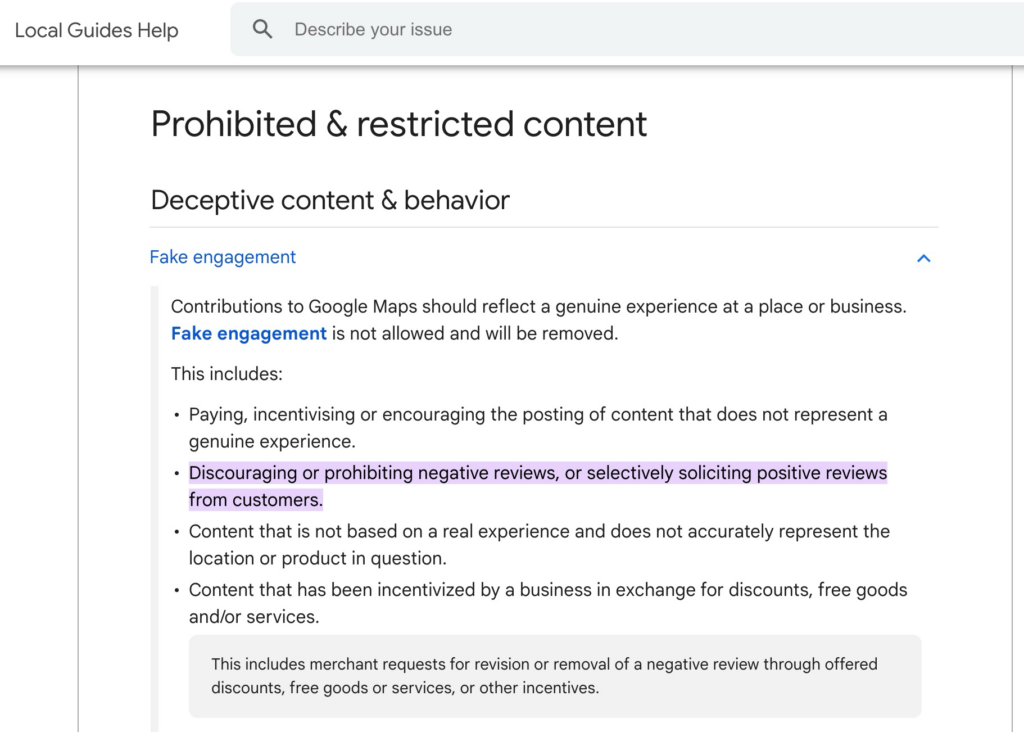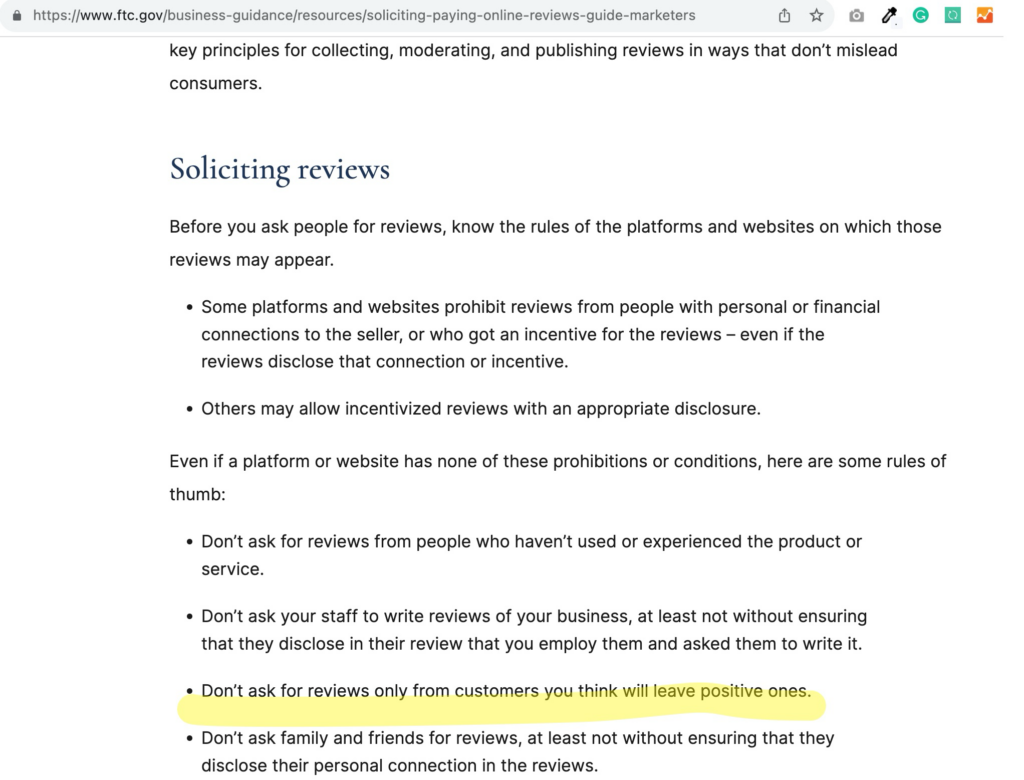
Best Practices
Review Gating: Is Your Vendor Jeopardizing Your Reputation?
Introduction
As we approach 2024 with generative artificial intelligence leading most discussions, it’s astonishing that some practices, like review gating, are still being used – and even promoted – by certain vendors. But what exactly is review gating, and why should you, as a business owner, be concerned? This post delves into the murky waters of this unethical practice and sheds light on how it could be placing your hard-earned reputation at serious risk.
What is Review Gating?
Review gating is a sneaky tactic where businesses filter customer feedback to encourage only positive online reviews. It usually starts with a preliminary NPS type of survey to gauge customer satisfaction. Something like sending a customer a text message, asking them how their experience was, and if they say great, they send them a review request. Only those who respond positively are then nudged to leave a review, effectively silencing negative or neutral voices.
The Google Policy Stance
Google, the most important place for your business online, has taken a clear stand against review gating. Their policies strictly prohibit this practice.
Why? Because it skews the authenticity of reviews, giving potential customers a distorted view of a business. Violating Google’s policy isn’t just a slap on the wrist – it can lead to severe repercussions like removal of reviews, decreased search rankings, or even a complete ban from the platform.

FTC Implications: A Legal Minefield

The Federal Trade Commission (FTC) is all about fair play and transparency in marketing of reviews. Review gating misleads consumers and is considered deceptive according to the FTC guidelines. The implications? You’re not just risking a tarnished reputation; you’re potentially facing legal action and fines. The FTC’s crackdown on such practices is a stark reminder of the importance of ethical marketing.

The Bottom Line: Ethical Practices are Non-Negotiable
It’s almost 2024, and it’s time to ditch these archaic, unethical “short cuts”. If your vendors are pushing or even subtly suggesting review gating, it’s a red flag. Not only are they placing your reputation on the line, but they’re also opening you up to potential legal issues and the wrath of major players like Google.
Take Action
Now is the time to take a stand for ethical business practices. Review your vendors, ask the hard questions, and commit to transparency. Your reputation isn’t just built on what you sell, but on how you conduct your business. Google removing reviews is one thing, but how but a customer finding out that treatment is different, and them publically outing you.
Conclusion
In an era where consumers are smarter and more discerning than ever, engaging in or condoning review gating is not just bad practice; it’s business suicide. Stay informed, stay ethical, and let’s work together to create a marketplace where trust and honesty are the cornerstones of every transaction.


